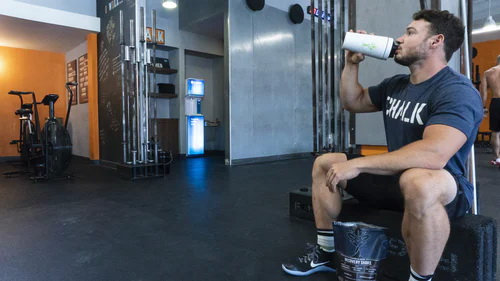The human body is made up of about 70 percent water. Under normal conditions it loses some body water through sweat, tears, urine and stool. Water also evaporates from the skin and leaves the body in the form of vapor when people breathe. Because of these facts, dehydration becomes a major health concern among many individuals. Dehydration is a condition in which the body lacks water and electrolytes. Electrolytes are substances which contains free ions that are used by the body in important cellular activity. This condition may lead to serious ailments and even death if not given proper attention.
One major cause of dehydration is insufficient consumption of water. Coupled with intensely hot weather, insufficient water intake may lead to severe dehydration or heatstroke (severe form of heat illness). In addition to these factors, other causes of dehydration may include intense workouts and other excruciating physical activities. These activities may cause excessive sweating and deplete the body of electrolytes and other necessary nutrients. Other causes of dehydration can be digestive problems caused by defects, illness or reaction to gastric bypass or other surgeries on the stomach. Health ailments like nausea and vomiting or diarrhea are other causes of dehydration. Too much alcohol and coffee consumption may also cause dehydration.
Some signs of dehydration may include dizziness, sunken eyes, rapid heartbeat, dry mouth, fatigue, and irritability. It is important to give emphasis on the treatment of dehydration because untreated and extreme dehydration can cause shock. This happens when there are insufficient water in the brains and other important organs.
It is important to learn the signs of dehydration and treat them quickly before they worsen. If possible, individuals should try not get dehydrated in the first place. The aim in treating dehydration is to replace lost fluids and electrolytes. Plain water is the best option in the first three hours. Health specialists encourage the use of sports drink and other alternative drinks with electrolytes. These products may replenish lost nutrients faster than ordinary water.
Here additional remedies that can be done to reduce the development of dehydration:
* Reduce or eliminate the consumption of dehydrating beverages like coffee, tea, and sodas. These drinks contain caffeine may increase the risk for dehydration.
* If drinks with caffeine are consumed, it is advised that more water than the normal daily total. The dehydration caused by these drinks can be compensated by drinking additional water.
* Include lots of fruits and vegetables in a diet. These foods have high water content and may increase the body’s water content.
* The sense of thirst is not a reliable dehydration indicator. Individuals may need water long before the sense of thirst is felt.
Many cases of dehydration can be prevented by keeping the body cool and by avoiding hot environments. It is a preventable condition that can result to death if left unattended. Extreme care should be taken to prevent dehydration especially during sports activities and intensely hot weather. Home treatment is usually that is needed to treat mild dehydration. However, intense exhaustion and sever dehydration may need immediate medical attention. Understanding the causes, symptoms, and possible treatments for dehydration may enable many individuals to be conscious of their water intake and improve their health.























